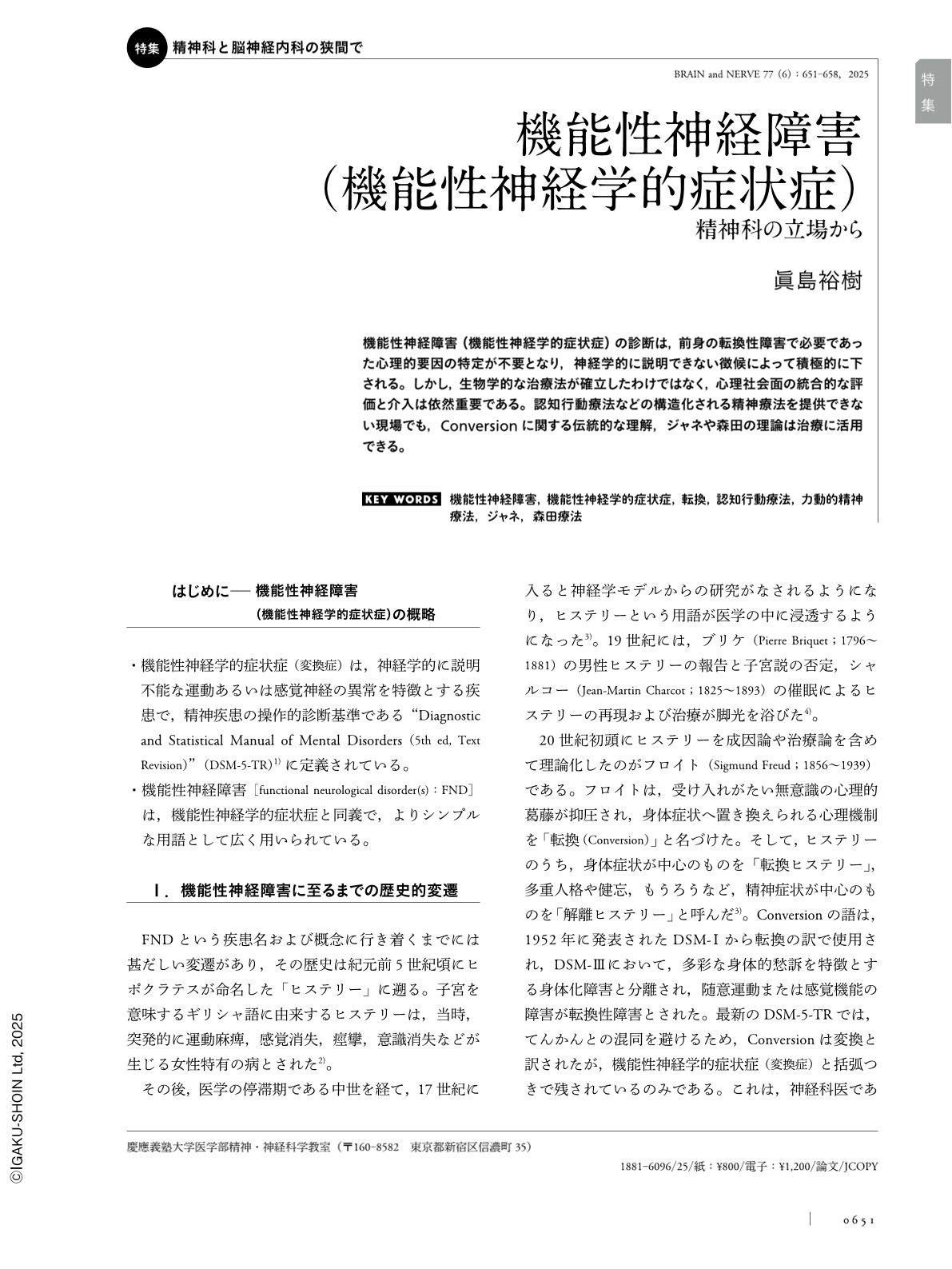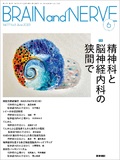Japanese
English
- 有料閲覧
- Abstract 文献概要
- 1ページ目 Look Inside
- 参考文献 Reference
機能性神経障害(機能性神経学的症状症)の診断は,前身の転換性障害で必要であった心理的要因の特定が不要となり,神経学的に説明できない徴候によって積極的に下される。しかし,生物学的な治療法が確立したわけではなく,心理社会面の統合的な評価と介入は依然重要である。認知行動療法などの構造化される精神療法を提供できない現場でも,Conversionに関する伝統的な理解,ジャネや森田の理論は治療に活用できる。
Abstract
Functional neurological disorders (FND), also termed functional neurological symptom disorders in the DSM-5-TR, are characterized by motor or sensory abnormalities lacking neurological explanation. Historically, this condition has been linked to hysteria. The concept of conversion-a psychological mechanism wherein repressed unconscious conflicts manifest as physical symptoms-remains widely accepted, though its validity has yet to be proven. Consequently, diagnosing FND no longer requires identifying psychological factors. Instead, the diagnosis is established based on positive neurological signs that lack an organic explanation. While the understanding of FND is evolving toward a biopsychosocial model, no standardized biological treatment currently exists, highlighting the necessity for psychosocial assessment and intervention. A comprehensive, individualized assessment of the patient's pathological narrative is preferred, in which traditional interpretations of conversion remain relevant. Cognitive behavioral therapy and psychodynamic therapy have been shown to be effective, yet accessibility remains limited, and patients with FND often exhibit reduced engagement. Even in clinical settings with restricted access to structured psychotherapy, the principles of Pierre Janet and Morita therapy can be effectively applied in treatment. Psychiatry is increasingly acknowledged as pivotal in refining treatment methodologies in clinical practice, with careful attention to the complexities of the mind.

Copyright © 2025, Igaku-Shoin Ltd. All rights reserved.


